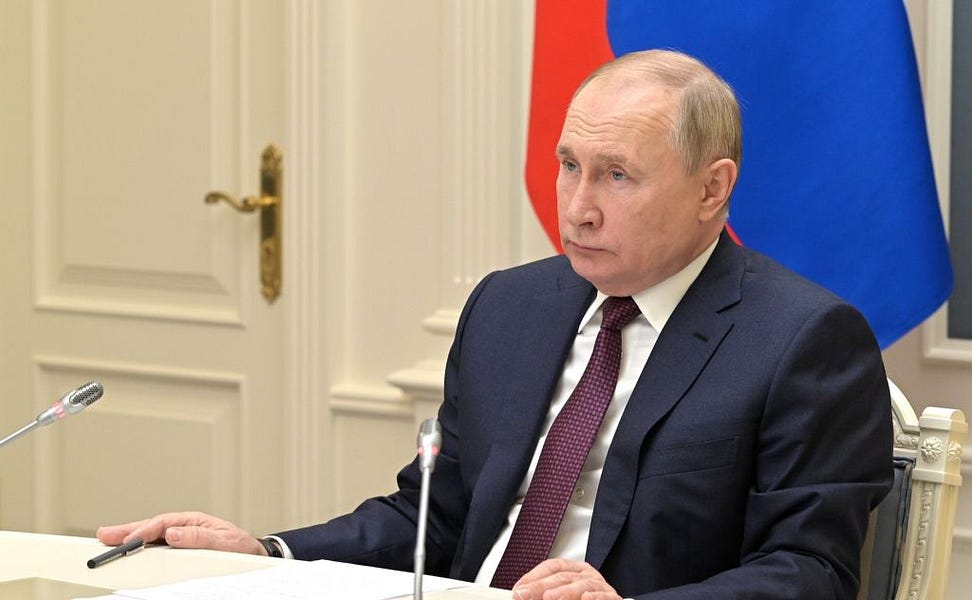For most of the last six years, the classically liberal, Reaganite wing of the American right has been fighting a defensive battle against a nationalist, more authoritarian movement that tied itself to the person of Donald Trump. Where Reaganite conservatives emphasize individual liberty and economic freedom, the nationalist conservatives embrace state power. Where Reaganite conservatives emphasize a robust international military presence and support defensive alliances such as NATO, nationalist conservatives question American military commitments abroad, including even our most longstanding relationships.
This attempt at a dramatic, wrenching change of the entire conservative movement into something unrecognizable was justified by a sense of profound emergency—American classical liberalism, the nationalists argued, was an exhausted, spent force. The culture war was lost. Conservatism had “conserved” nothing, and emergency measures were required to rescue the country we love. This movement accordingly admired authoritarian rulers abroad, including even Russia’s Vladimir Putin.
Putin seemed strong while we were weak. He was decisive while we dithered. He wasn’t afraid of his nation’s Christian heritage. He refused to bend the knee to the “woke” West. If you spent any time in online intellectual spaces, you’re familiar with the arguments.
After Russia’s invasion of Ukraine, they’re in retreat. On multiple fronts. Let’s count the ways:
First, real war exposes the silly urgency of fake war. To consume right-wing media before the Russian invasion was to be exposed to a tidal wave of grievance and exaggeration. America was lost. Big Tech was an instrument of tyranny. Vaccine or mask mandates were markers of totalitarianism—more of an emergency, indeed, than the coronavirus itself.
The argument for a big change in the American right is rendered more potent by the perpetual alleged existence of a big crisis, and if the crisis didn’t truly exist, it had to be manufactured. A generation of young conservatives are being taught that they’re growing up in an undemocratic, decadent hellhole, and that desperate times call for desperate measures.
Then the missiles started to fall on Kyiv, and anyone with a modicum of decency and common sense could see the distinction, not just between real war and fake war, but between real tyranny and fake tyranny. Understanding these distinctions doesn’t mean abandoning any given position (Russia’s airstrikes don’t make Twitter’s moderation fair), but it does mean putting them in perspective.
For example, America has much less of a tyranny problem than it does a fear of tyranny problem. It has much less of a problem with election unfairness than it does with a fear of election unfairness. Vigilance against government overreach is healthy, but our present panicked political rhetoric far overstates the threat. A simple dose of perspective can go a long way toward soothing our jittery national nerves.
Second, it’s dangerous to tie the church too closely to the state. One of the underappreciated aspects of the Russian invasion is the extent to which it is a religious conflict. My former National Review colleague Jim Geraghty had a good short piece last week on the way in which Patriarch Kyrill of the Russian Orthodox Church and Putin enjoy a symbiotic relationship, with Putin seeing himself as possessing a distinctly religious purpose in both preserving Christian civilization and unifying the Russian Orthodox Church.
On Sunday, Patriarch Kyrill delivered a message that tied the conflict to Western advocacy for LGBT rights. Here are two key paragraphs:
For eight years there have been attempts to destroy what exists in the Donbass. And in the Donbass there is rejection, a fundamental rejection of the so-called values that are offered today by those who claim world power. Today there is such a test for the loyalty of this government, a kind of pass to that “happy” world, the world of excess consumption, the world of visible “freedom”. Do you know what this test is? The test is very simple and at the same time terrible—this is a gay parade. The demands on many to hold a gay parade are a test of loyalty to that very powerful world; and we know that if people or countries reject these demands, then they do not enter into that world, they become strangers to it.
And:
Therefore, what is happening today in the sphere of international relations has not only political significance. We are talking about something different and much more important than politics. We are talking about human salvation, about where humanity will end up, on which side of God the Savior, who comes into the world as the Judge and Creator, on the right or on the left. Today, out of weakness, stupidity, ignorance, and most often out of unwillingness to resist, many go there, to the left side. And all that is connected with the justification of sin, condemned by the Bible, is today a test for our faithfulness to the Lord, for our ability to confess faith in our Savior.
Orthodox unity and Orthodox teachings regarding sexual morality are matters best left to the Orthodox church. But tie the power of the church to the power of the state, and we see a familiar pattern repeat itself. The basic moral principles of Christianity are sacrificed on the altar of Christendom. The marriage of Christianity and power can result in the worst of both worlds. It brings us zeal mixed with oppression, the ingredients of religious war.
Third, liberal weakness is greatly exaggerated, and so was Russian strength. One of the more tiresome tropes of the new right is the idea that liberalism equals weakness. Rights-based communities are too decadent, too self-indulgent to prevail in a civilizational contest against civilizations that explicitly value and celebrate martial courage. In the second week of the war, as Russian losses mount, Ukrainians are fighting like lions, and it’s becoming increasingly clear that Russian conventional forces can’t match the discipline, skill, and fighting spirit of western militaries, messages like this, from Sen. Ted Cruz or the Daily Wire’s Matt Walsh age very poorly indeed:
I don’t agree with every military diversity training module, and I roll my eyes at some of the ads, but any meaningful exposure to our military’s performance in the field—especially in contrast to Russia’s—should cure anyone of the idea that we’re too “frail” to fight.
Fourth, Americans do in fact care about people beyond our borders. One of the core arguments of the new nationalist right is the idea that America has expended far too much energy abroad, when what Americans truly care is what happens at home. And in normal times there’s a strong basis for that belief. Americans don’t pay much attention to foreign policy. They do focus the vast majority of their energies at home.
But when a crisis arises abroad, we consistently respond with extreme energy and attention and care for others. One reason why Joe Biden miscalculated so profoundly with his withdrawal from Afghanistan is that he failed to realize that Americans may have wanted to end the war, but they did not want to lose the war (and thus abandon our allies to the Taliban)..
Most Americans had barely thought about Ukraine until the moments when the missiles fell on Kyiv, and the sleeping giant woke again. In this instance the urge to do something is so powerful that strong majorities of Americans even want to go so far as to impose a no-fly zone over Ukraine (though I do wonder if that majority would hold if Americans knew a no-fly zone would likely mean war with Russia).
And when Americans care, they want America to act. The preservation of our alliances and our global presence preserves the very abilities that the American people demand we possess when crisis comes, and woe to the leader who is unprepared or unwilling to meet the moment.
Fifth, once again, Twitter isn’t real life. It’s increasingly clear to me that the “new right” is mainly a social media phenomenon, one that exercises outsized influence mainly because the political and journalistic class spends so much time on Twitter. But move into the real world, and the strange new respect for authoritarianism starts to vanish. The Very Online skepticism of classical liberalism of the American founding starts to wane.
When Russia invaded Ukraine, the American people responded with overwhelming solidarity with Ukraine. The very idea of sympathy for the Russian autocrat seemed bizarre. It seemed fringe. That’s because it is bizarre. It is fringe. And just as America’s political class needs a dose of perspective on the gravity of our domestic disputes, it also needs a dose of perspective on the relative influence of online ideas.
Our political class is constantly overreacting to Twitter trends, and no matter how many times ordinary Americans seek a course correction, the political class veers back into Twitter discourse and online disputes. Part of this is human nature. The loudest voices tend to get the most attention, and Twitter is full of loud voices that are braying day and night.
The majority of the people, by contrast, tend to shout loudly only occasionally. On Election Day, for example, or in times of extreme crisis. Then they fall back to their normal lives, and leave the daily conversations to the political professionals and the political hobbyists.
The postliberal right derives most of its energy from Twitter. It hectors and insults and memes day and night. Its small numbers of extremely energetic tweeters creates a false impression that they’re at the front edge of a much larger movement. In reality, they’re marching away from the majority, and moments like this remind us why.
Authoritarians have been writing liberalism’s obituary for generations. They see freedom in all its messy manifestations, watch democracies make concessions for peace, and then wrongly conclude that liberalism is a spent force, too weak to stand in the face of strength and order.
Yet liberalism endures. It is still stronger than its authoritarian foes, and when American postliberals offer an authoritarian solution to the maladies that plague our land, they’re appealing to forms of government that corrupt the church, turn citizens into subjects, and prove ultimately to be both weaker and more dangerous than the systems they seek to replace.
One last thing …
I’m sharing this for two reasons. First, because it’s hilarious on its own terms. Second, if you click through and watch some of the other videos in the replies, you’ll see some of my favorite moments from my favorite sports show on television. Shaq, Ernie, Kenny, and Charles are national treasures.







Please note that we at The Dispatch hold ourselves, our work, and our commenters to a higher standard than other places on the internet. We welcome comments that foster genuine debate or discussion—including comments critical of us or our work—but responses that include ad hominem attacks on fellow Dispatch members or are intended to stoke fear and anger may be moderated.
You are currently using a limited time guest pass and do not have access to commenting. Consider subscribing to join the conversation.
With your membership, you only have the ability to comment on The Morning Dispatch articles. Consider upgrading to join the conversation everywhere.